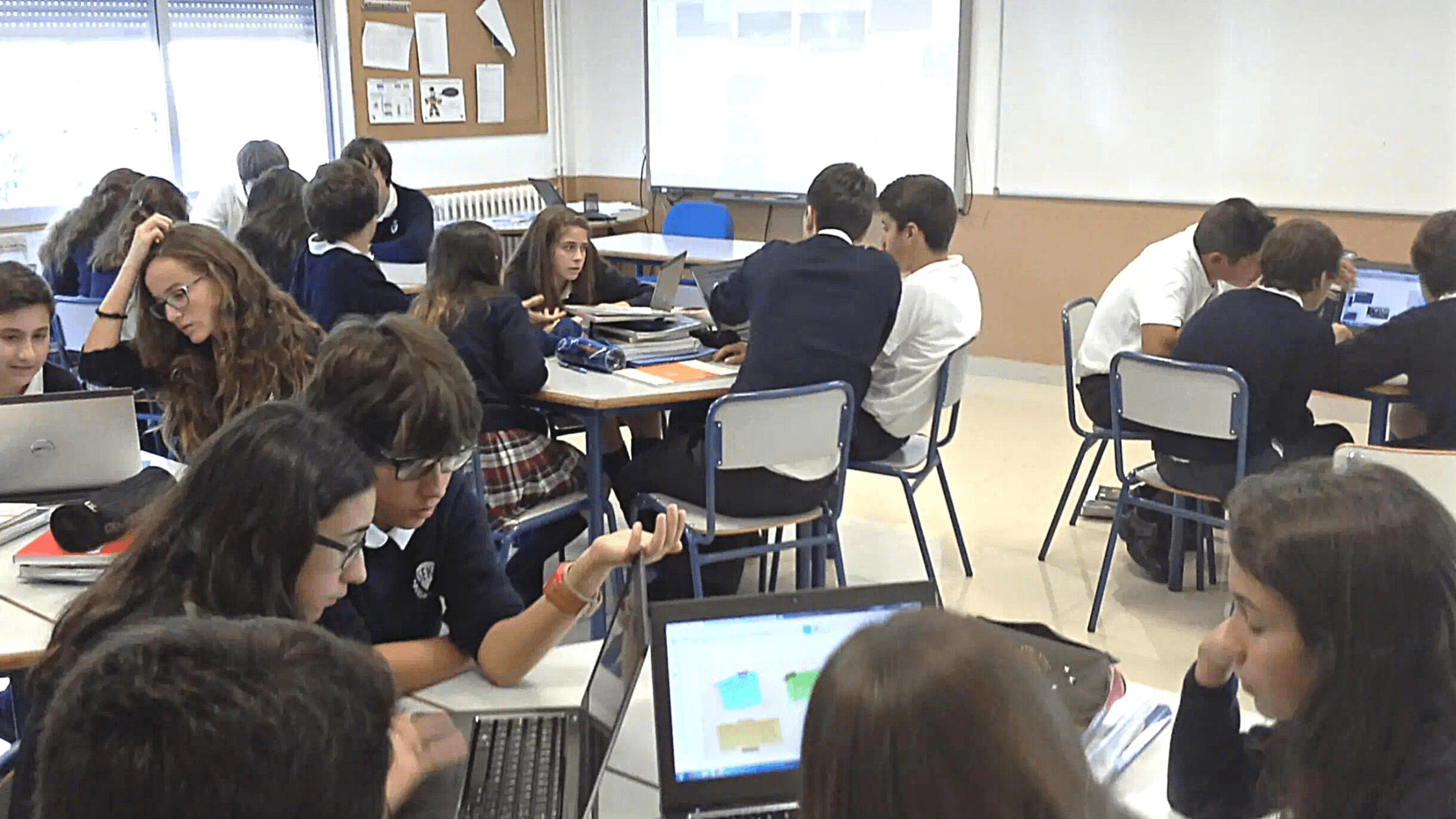About the International Baccalaureate (IB) programme and the SEK Atlántico International School in Spain
The IB programme stresses the importance of high-level critical thinking skills, while emphasising and requiring that these skills be applied in projects that focus on international-mindedness and community engagement.
SEK International School Atlántico is a medium-sized school established 26 years ago in the outskirts of Pontevedra, Spain. 670 students from nursery to secondary age attend the school, which is the only school in the region to offer three IB programmes for varying age groups:
the Primary Years Programme (PYP) for students aged 3 to 12, the Middle Years Programme (MYP) for students aged 13 to 16 and the Diploma Programme (DP) for students in grades 11 and 12.
The challenge
The emphasis IB programmes place on the student learning experience means that class activities must be focused on inquiry-based methodologies. That means students need to manage several different sources of information, even from the earliest years, and develop research and communication skills for searching, selecting, comparing, summarising, and presenting knowledge. To facilitate this, students need to shift from teacher-guided inquiry to self-guided inquiry, to better develop critical thinking, collaboration, communication, and creativity skills.
Secondly, the emphasis IB places on international-mindedness means that being able to simply and effectively collaborate with peers across the globe is a foundational component of truly achieving the goals of the programme.
Finally, the programmes (especially MYP and DP) stress that student learning must have an impact in the community. These community-oriented projects are primarily led entirely by the students themselves, meaning that teachers need to have a way to follow their progress and give feedback. Any one of these foundational elements of the programme would be greatly enhanced by technology; however, the required emphasis on all three makes a robust technology solution a must.
The solution
In order to meet the technological demand of the IB programme, SEK combined Lumio with student devices (netbooks and tablets/iPads) to allow teachers to present content and tasks, give direct instruction, help students in the research process, and do formative and summative assessments. More importantly, the software enabled students to collaborate, share, and present knowledge, both in the acquisition of information and its transformation into knowledge, as well as in the presentation of this new knowledge to the community of teachers, parents, and peers (globally).
Lumio combines lesson creation and delivery, game-based activities, assessments, and web-based collaboration. Here is how SEK told us they use each component of Lumio:
- We use Lumio for presentations (both teacher and student led), to share resources during lessons, create lesson material, and for teacher-guided and self-guided inquiry
- Lumio helps our educators check for understanding in a fun and attractive way for students through game-based activities that gauge student understanding
- We design opportunities for formative assessment throughout the learning process to follow each student’s learning journey
- Students can create materials with Lumio collaboratively, as an interactive and collaborative tool to guide students in the first steps of inquiry (particularly with the younger year groups) and for managing and developing collaborative work
The benefits
According to teachers at SEK, Lumio perfectly complements inquiry-based learning. It has applications that enable all of the configurations needed to develop students’ skills (from individual research and information management to small group activities and tasks, collaborative content building, whole group presentations, and discussions). Plus, the software has a global reach, making collaboration around the globe as simple as across the classroom.
What's next?
SEK is now focusing on the deeper development of several concepts stressed by the IB programme, including gamification, peer-to-peer mentoring, and community engagement. The plan is to use Lumio’s pedagogically focused features to complement these efforts.
Gamification
Game-based activities in Lumio provide a fun way to gauge student understanding, and its added formative assessments features have teachers excited about the prospect of further exploring its impact in the classroom.
Community engagement
A mandatory component of the IB programme is that projects have an impact on the community. Lumio’s anywhere, any-time access makes it simple for teachers to follow each student’s projects whether they are working in the classroom or not. Each step of the project, from research and planning to action and reflection, can be viewed by teachers at any time, with easy channels for feedback available in the software.


